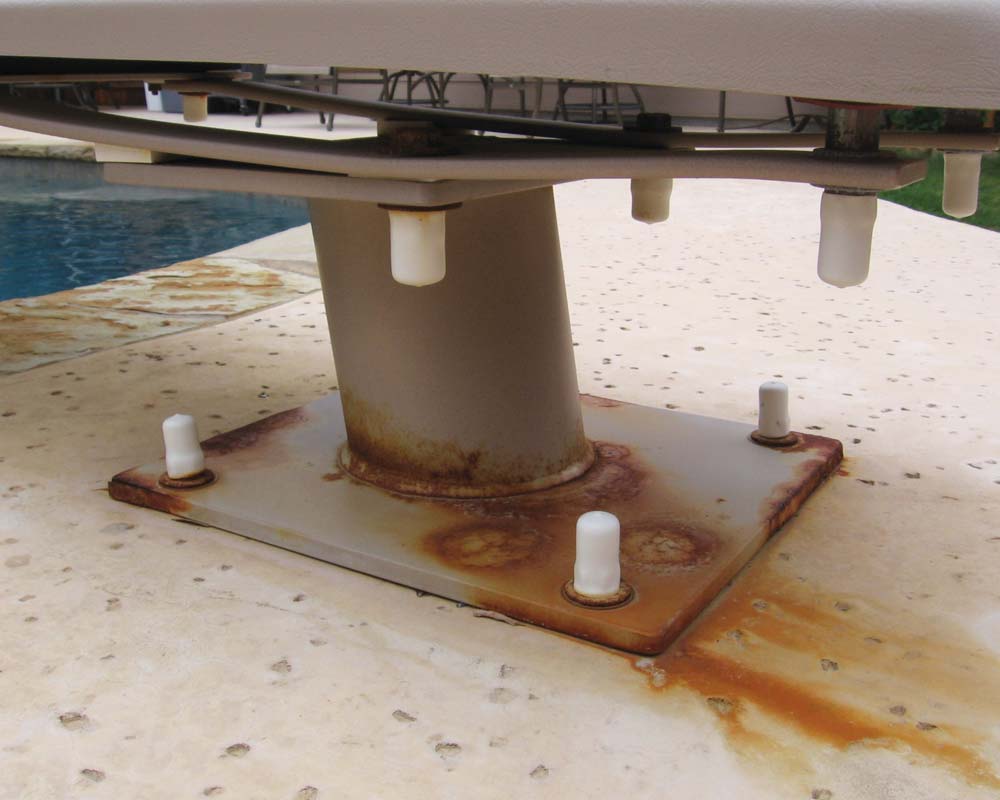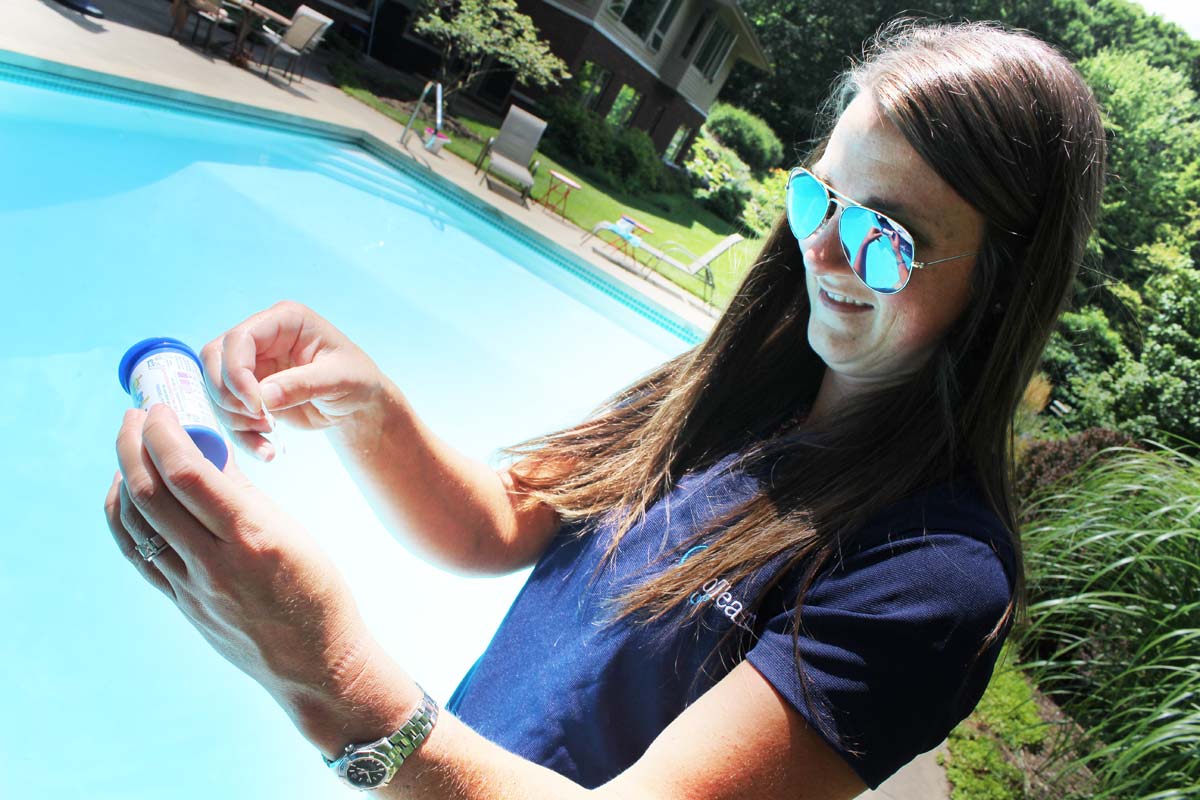Side effects of salt chlorine generators

Inherent in the way salt chlorine generators work are ‘side effects’ that can adversely affect the successful operation and appearance of a pool—namely corrosion and scale. Fortunately, borates can be used as a simple way to overcome many of these side effects. They are administered to the pool one time, typically a once a year application. Borates are an extracted earth mineral that possess several benefits to recreational water. They are unique in that they remain in the water and are only lost through water removal (e.g. splash out or backwashing). Adding borates during pool start-up is ideal, as they serve as an additional buffering system for the water.
How borates can help in pools with salt chlorine generators
One of the primary reasons borates have gained popularity among pool service professionals is its ability to control corrosion in a saltwater pool environment. Borate products are available in powders and slurries and should be added directly to the pool.
Borates have a buffering ability that allows pool water to remain at a more neutral pH level for a longer period. This, in turn, allows the chlorine to be more efficient and effective at sanitizing the water.
Corrosion prevention
As mentioned earlier, the electrolysis that occurs in the ECG can cause de-plating problems on handrails, light niches, and other metal components. Borates create another buffering system for the water that eliminates these effects.
Many pool professionals agree that borates are a good companion product to salt chlorine generators because they assist in making pool water maintenance easier. ECGs are sold to make sanitizing pool water easier; therefore, the last thing a pool professional wants is for this equipment to cause additional maintenance issues.
“It worth the consumer’s extra investment in a borate product,” says Jonathan Schulhoff, retail manager at Arthur Edwards Pools in Long Island, N.Y. “Borates add an anti-corrosion effect that helps protect against rust on equipment, accessories, and fixtures around the pool. Our customers who use borates are never in the store with rusted ladders—even the vinyl liners seem to last longer.”
Calcium scale prevention

High calcium content can lead to scale formation (as well as cloudy water). Scale forms when calcium and carbonates crystallize on the pool’s surface, walls (around the waterline), and equipment. This problem is compounded by high pH. Borates keep pH from creeping upwards to help prevent scaling.
With the increased installation of ECGs, borates have become even more important because scale can reduce the life of the cell plates in the salt chlorine generator. By maintaining borate levels at 50 ppm in pools equipped with salt chlorine generating systems, pool professionals will find salt cells last much longer.
“Salt conversion cells on chlorine generators in pools where borates are used can easily last a decade,” says Schulhoff. “Even customers who ensure their pool water is balanced typically only get five to six years out of an equivalent cell.”
The reason salt cell lasts longer when borates are used is because it bi-chelates (or bonds) with calcium present in the water, allowing the cell to remain cleaner because less scale forms. Although scale does form in some cases, it is a much ‘softer’ scale that is easier to remove. Further, as less acid is required to clean the cell plates, plate damage is minimized as well.






